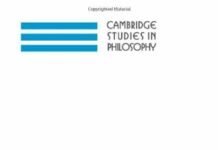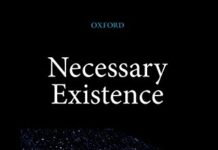
Ebook Info
- Published: 2011
- Number of pages: 320 pages
- Format: PDF
- File Size: 31.31 MB
- Authors: Alexander R. Pruss
Description
Book Description: Actuality, Possibility and Worlds is an exploration of the Aristotelian account that sees possibilities as grounded in causal powers. On his way to that account, Pruss surveys a number of historical approaches and argues that standard accounts of possibility or necessity are implausible. The notion of possible worlds is useful for many purposes, such as the analysis of counterfactuals or accounting for supervenience. This usefulness of possible worlds makes for the question: Are there any possible worlds and, if so, what are they? Are they concrete universes as David Lewis thinks, Platonic abstracta as per Robert M. Adams and Alvin Plantinga, or maybe linguistic or mathematical constructs such as Heller thinks? Or is perhaps Leibniz right in thinking that possibilia are not on par with actualities and that abstracta can only exist in a mind, so that possible worlds are ideas in the mind of God?
User’s Reviews
Editorial Reviews: Review “In this book Alexander Pruss cogently argues the merits of an Aristotelian account that takes possibilities to inhere in the causal power of things. His instructive and insightful approach will be of interest to anyone concerned with the metaphysics of modality.” — Nicholas Rescher, Distinguished University Professor of Philosophy, University of Pittsburgh, USA. About the Author Alexander R. Pruss is Associate Professor of Philosophy at Baylor University, TX, USA. He has PhDs in both Philosophy as well as Mathematics and is the author of The Principle of Sufficient Reason: A Reassessment (CUP, 2006) and co-editor, with Richard M. Gale, of The Existence of God (Ashgate, 2003). Excerpt. © Reprinted by permission. All rights reserved. Part I. INTRODUCTIONSection 1 Generic definitions and basic modal realism Section 2 Metaphysical versus logical possibility?Section 3 S5Section 4 Eight views of possibilityPart II. APPLICATIONS AND PSEUDO-APPLICATIONS Section 1 Modality Section 2 Counterfactuals and causality Section 3 Propositions Section 4 Properties Section 5 Overall assessmentPart III. THE LEWISIAN ONTOLOGY OF EXTREME MODAL REALISM Section 1 The Lewisian account of possible worlds Section 2 Identity vs. counterpart theory Section 3 Indiscernible worlds?Section 4 Lewis’s arguments for his ontology Section 5 Objections to Lewis’s account of actuality Section 6 The possibility of spatio-temporally unrelated co-actual entities Section 7 Cardinality and the “set” of all possible worlds Section 8 Ethical issues Section 9 Induction and actuality Section 10 The epistemological objection Section 11 Explaining the actual in terms of the necessary Section 12 A final assessment of extreme modal realismPart IV. PLATONIC ERSATZ ONTOLOGIESSection 1 The general strategySection 2 Linguistic approachesSection 3 PlatonismSection 4 ConclusionsPart V. SKETCHES TOWARDS A SPINOZISTIC-TRACTARIAN ACCOUNT OF MODALITY Section 1 Asserting, naming and infallibility Section 2 Spinoza Section 3 A radical theory of modality Section 4 Costs Section 5 The less radical theoryPart VI. ARISTOTELIAN-LEIBNIZIAN ONTOLOGY Section 1 Leibniz’s approach Section 2 Aristotelian possibility and causality Section 3 Combining with the Spinozistic-Tractarian view Section 4 Ordinary alethic modal talk Section 5 The Principle of Sufficient Reason Section 6 Ontology and implications Section 7 The main challenges to Lewisian and Platonic ontologies can be resolved Section 9 Objections to the A-L viewPart VII. FINAL CONCLUSIONSSection 1 Cost-benefit arguments for the Aristotelian-Leibnizian ontology of possible worlds Section 2 Choosing between accounts of possibility Read more
Reviews from Amazon users which were colected at the time this book was published on the website:
⭐Alexander Pruss’s work in this book is impressive. In this text, Pruss steps forward to answer the two fundamental questions that are asked with regards to the metaphysics of modality:i) What are possible worlds?ii) What ontological assertions make modal assertions true?Pruss surveys many accounts including those of Parmenides, Leslie, Rescher, Leucippus, Democritus, Meinong, Lewis, Aristotle, Plato, Leibniz, and others. Pruss finds that each of them have defects in that it is either the case that they are inadequate in answering the challenge posed by (i) or (ii), they lead to certain paradoxes, or else they fail in other explanatory ways.Pruss proposes a robust – though modified – Aristotelian-Leibnizian view which holds that possible worlds are divine ideas in the mind of God (Leibniz) and that the ontological truth-making grounds is God’s omnipotent causal capacity (Aristotle) as the First Cause. The Leibnizian side of the account answers (i) and the Aristotelian side answers (ii).If the reader is familiar with Pruss’s work on the Principle of Sufficient Reason then he/she will know to expect a mixture of highly technical and analytical argumentation, with concise and perspicuous conclusions.In short, this is a must read for anyone seriously interested in the metaphysics of modality.
⭐Book was in excellent shape.
⭐I came across this book over a year ago, in my university’s library, while doing research on possible worlds.This book gives rigorous, clear and straightforward arguments against the major contemporary options in possible worlds realism–namely, platonism and Lewisian realism.It then offers what on first sight appears to be a very novel and semi-esoteric realist ‘neo-Aristotelian’ metaphysical account of modality, which draws on Aquinas, Spinoza, Leibniz and Wittgenstein, among others. The full theory Pruss has in mind is one that grounds modal truths in causal powers, and additionally takes possible worlds to be ideas in the mind of God. That is to say, Pruss’ theory is in fact a realist account of possible worlds. However, its main components come from Aristotle/Aquinas and Leibniz, and the core of it (the powers theory of modality) is ultimately Aristotle. Similar such neo-Aristotelian views are defended by Timothy J. Pawl, Andrea Borghini & Neil Williams, George Molnar, Gabriele Contessa, and others.I felt that the best parts of the book were the critiques of Platonism and Lewisian realism. I found them truly devastating. Pruss’ own positive theory, on the other hand, came across more like a set of suggestions, than views he was setting out to defend the truth of. Those who are specifically looking for an understanding of neo-Aristotelian modality would do well to read Pruss’ shorter (2002) article, ‘the Actual and the Possible’, as well as Jonathan D. Jacobs’ (2010) article on powers and neo-Aristotelian metaphysics, as good introductions to the topic.This book is an exemplary piece of analytic philosophy. I’d recommend this book to anyone interested in the metaphysics of modality, contemporary metaphysics in general, or the interface between Aristotelian-Thomist metaphysics and analytic philosophy (‘analytic Thomism’).
Keywords
Free Download Actuality, Possibility and Worlds in PDF format
Actuality, Possibility and Worlds PDF Free Download
Download Actuality, Possibility and Worlds 2011 PDF Free
Actuality, Possibility and Worlds 2011 PDF Free Download
Download Actuality, Possibility and Worlds PDF
Free Download Ebook Actuality, Possibility and Worlds



